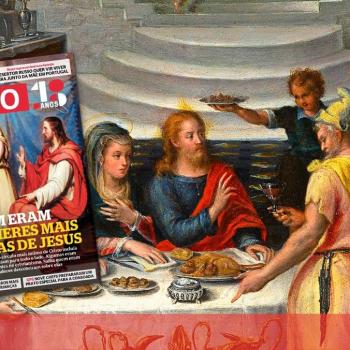As Trinity Sunday approaches, there is bound to be an increase in blogging about the Trinity and about Christian views of God more generally. Here are some items that have already come across my radar:
 Allan Bevere suggests that the Trinity is not an appendix to Christian doctrine but something central. I find this a problematic assertion, even though I appreciate some of the things that he suggests that the Trinity can help to emphasize, such as God as inherently relational. The Trinity in its later metaphysical elaboration is simply not there in the New Testament, and so one has to ask in what sense something that was not there from the beginning, nor part of Jesus’ own teaching or viewpoint, can be considered central to Christian faith.
Allan Bevere suggests that the Trinity is not an appendix to Christian doctrine but something central. I find this a problematic assertion, even though I appreciate some of the things that he suggests that the Trinity can help to emphasize, such as God as inherently relational. The Trinity in its later metaphysical elaboration is simply not there in the New Testament, and so one has to ask in what sense something that was not there from the beginning, nor part of Jesus’ own teaching or viewpoint, can be considered central to Christian faith.
Andrew Perriman deals well with an important piece of New Testament evidence, 1 Corinthians 8:4. I’ll give his conclusion below – click through to see how he reaches it.
So when Paul says that “for us there is… one Lord, Jesus Christ”, he is not saying that Jesus is the “LORD” in the Shema, that Jesus is YHWH. He is saying that Jesus has been given an authority—or a name—above that of all the other “lords” that hold sway in the Greek-Roman world. He does not have this authority as YHWH. He has received it from YHWH.
 Dan McClellan and Johnson Thomaskutty interacted with a recent post by Larry Hurtado, reviewing a book about the “one and only God.”
Dan McClellan and Johnson Thomaskutty interacted with a recent post by Larry Hurtado, reviewing a book about the “one and only God.”
John Squires and Elizabeth Raine explore issues of Trinitarian theology through a fictional dialogue.
J. J. Goldberg briefly discusses possible influence of Christian Trinitarianism on Jewish mysticism.
And of course, for my own thoughts in detail, see my book The Only True God: Early Christian Monotheism in Its Jewish Context.












